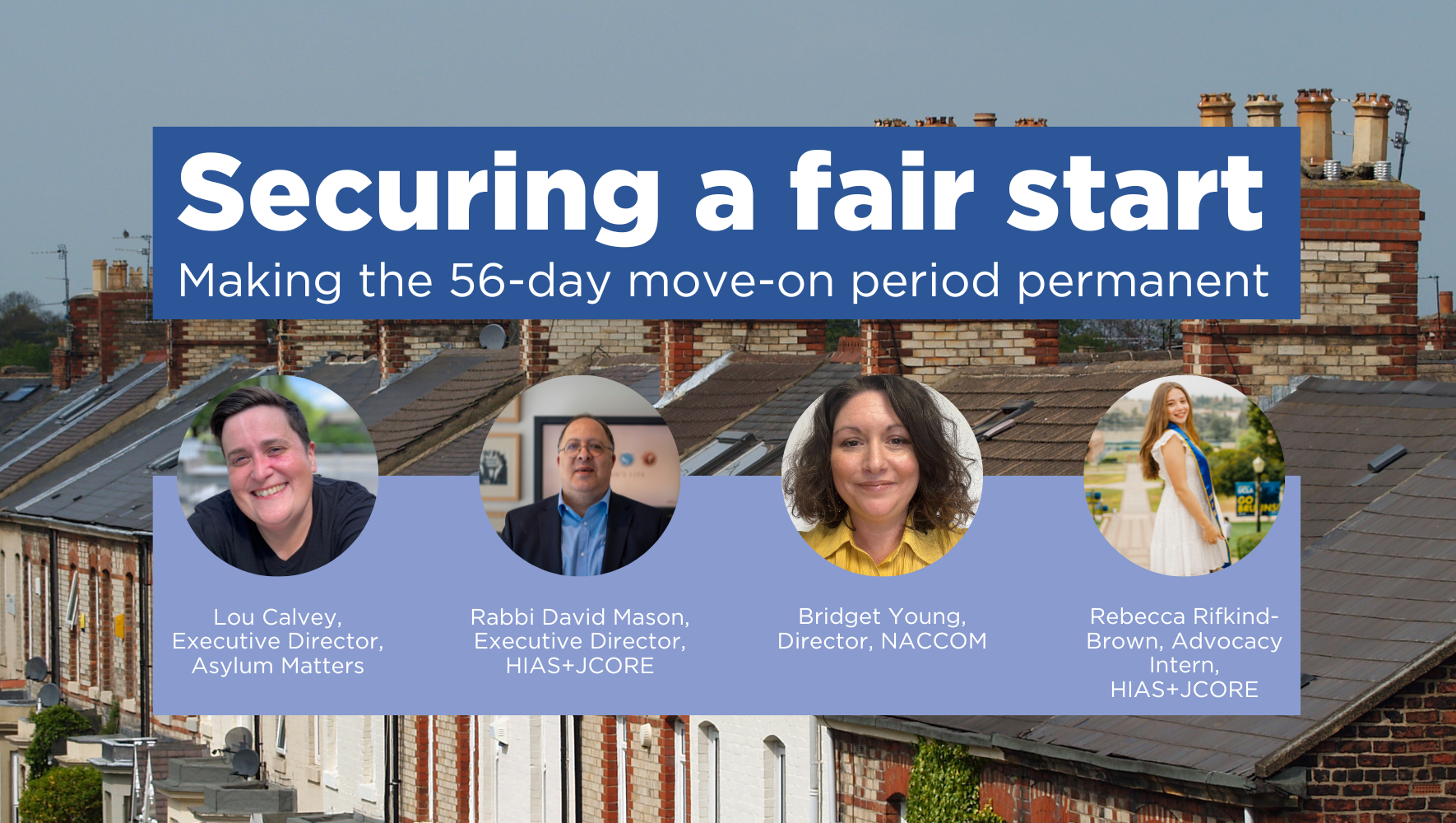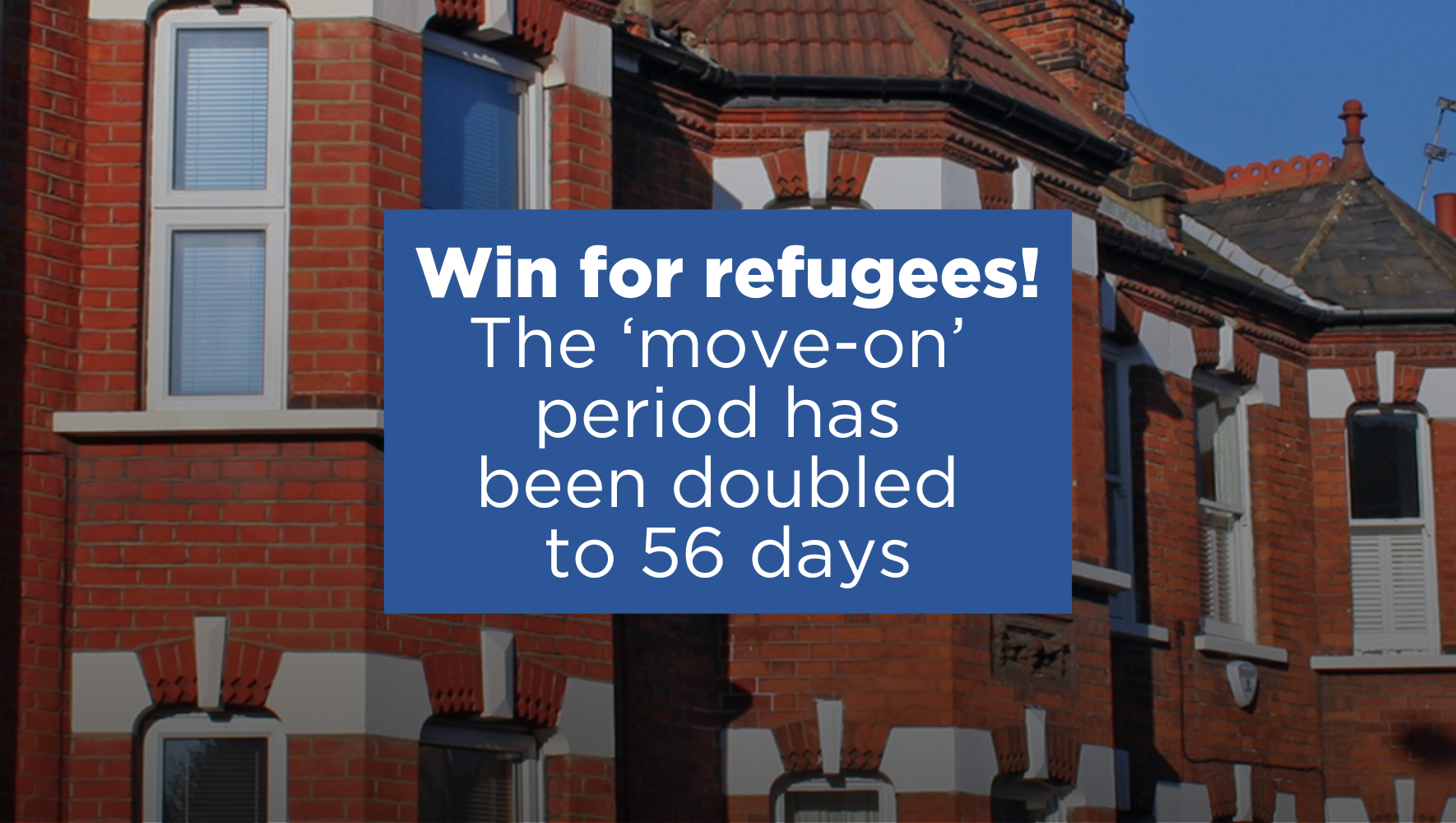
The need for a permanent 56 day ‘move-on’ period, and role the Jewish community can take in advocating for change, was discussed at an online event hosted by HIAS+JCORE on 21 January 2025. Titled ‘Securing a fair start – making the 56-day ‘move-on’ period permanent’, the session outlined the important impact that this policy change would have for new refugees.
But speakers also stressed that this step must just be one element in a package of reform to the UK’s asylum system.
We see a system where we seem to have accepted lesser standards, lesser rights, for a group of people. I firmly believe that if you accept less for anyone, you risk less for everyone.Bridget Young, NACCOM
That cliff edge is a choice that government and policy makers take... What we should be saying is that the system does not work. And it harms people.Lou Calvey, Asylum Matters
Run as the first in a series of HIAS+JCORE advocacy events, attendees heard from Bridget Young, Director at NACCOM, Lou Calvey, Director at Asylum Matters, and HIAS+JCORE’s Executive Director Rabbi David Mason.
Other measures to support refugee integration proposed at the session included lifting the ban to grant people seeking asylum the right to work after six months, ensuring that those waiting for a decision are housed in the community, not hotels, or isolated detention-style accommodation, and greater provision of language and employment support.
The best way to combat the growing far-right narrative is to actually help people seeking asylum build those social links, those social bridges and bonds. Much of that will come from people seeking asylum living in our communities, and working.Lou Calvey, Asylum Matters
Audience members also heard about the improvements required to ensure the 56 day ‘move-on’ period’s success. Recommendations include guaranteeing that new refugees receive all key documents together, the Government working more efficiently with Local Authorities and voluntary organisations, and for evaluation of the current trial to consider wider issues with the current housing and asylum system.
Click below to re-watch the full event recording.




